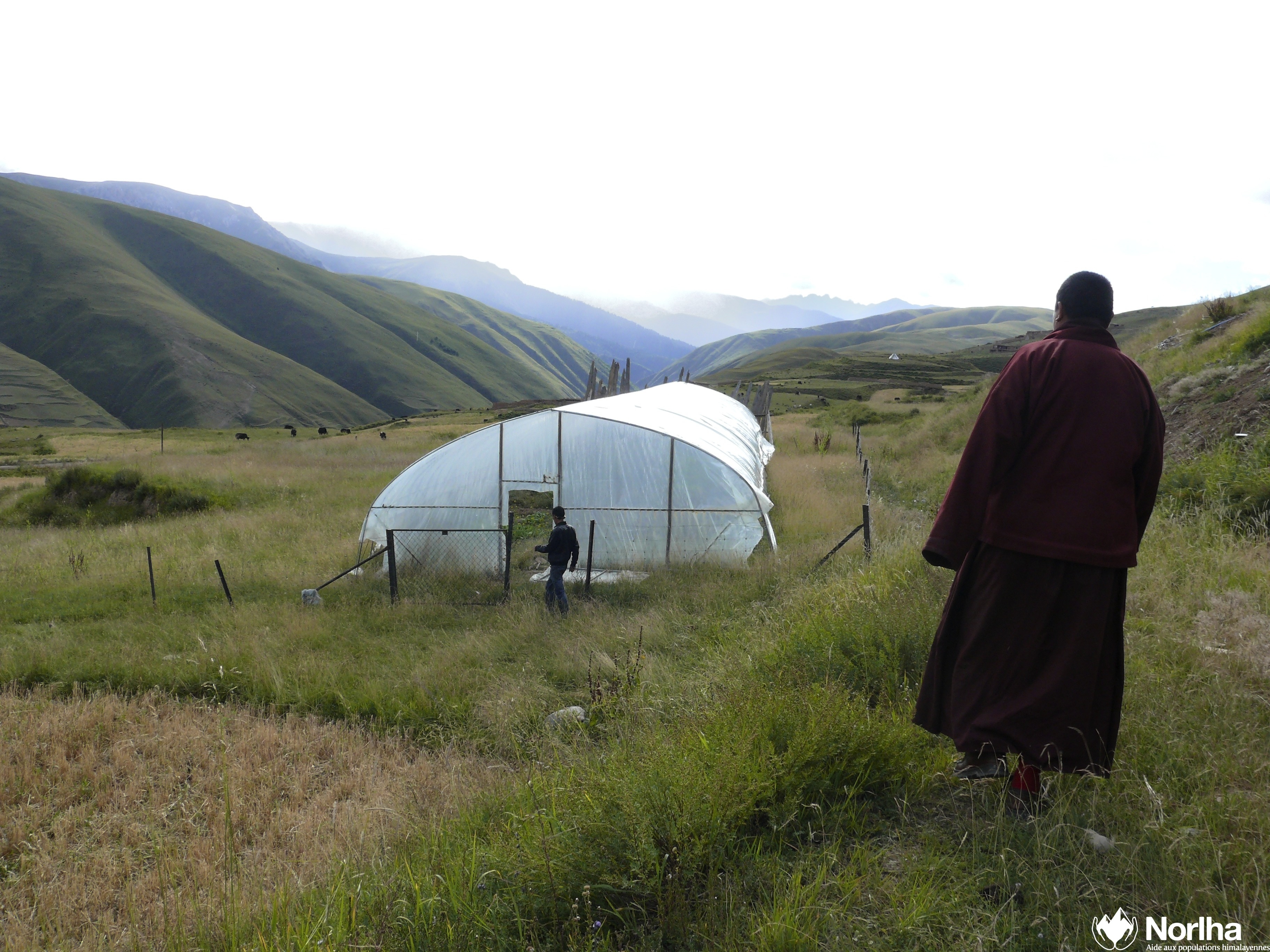In 2013, Norlha, supported by Humanium, launched the project Vegetables for Health in the Sershul region of Tibet, China. Today, we are happy to be able to share with you the progress this project has made.
Sershul, in Sichuan province, is located at more than 4000 m (13,123 ft) above sea level, and endures long and harsh winters. The majority of the population lives on the brink of poverty, and even though the right to a proper diet is a fundamental human right, this right is yet to be given complete recognition on behalf of all in Tibet. Living conditions are difficult, leading to malnutrition which affects not only the health of all the residents, but also the physical and intellectual development of the children. In this region, livestock are the main source of food. Because of the harsh climate and low temperatures during seven months of the year, vegetables are difficult to grow and, because of their cost, the people cannot afford to purchase them. They are, however, an indispensable food for children and childhood development. A lack of vegetables in the diet weaken immune system, making children particularly vulnerable to diseases and rendering them susceptible to other health problems. Maternal and infant mortality rates are high in Tibet, and cases of rickets and goiter are, unfortunately, common. A nutritious, vegetable-rich diet, is an excellent way to combat these problems.

In the interests of addressing the abovementioned issues, Humanium has committed to making the Right to Food a reality for the inhabitants of this region. According to Olivier de Schutter, the UN special representative on the right to food: “The right to food means not only access to a sufficient quantity of food, but also a balanced diet.” The project that Humanium supports involves constructing greenhouses in order to cultivate vegetables in spite of the harsh climate. At present, 35 family greenhouses have been built, enabling these families to produce and consume their own vegetables, and also to share the surplus of their harvests with other villagers. Provision has also been made for greenhouse management and maintenance training. Seed and gardening tool kits were also distributed, along with technical support. Awareness campaigns on the importance of a balanced diet are being conducted ,from which 300 people have already benefited.
It is vital to ensure the long-term continuity of a project beyond simple humanitarian assistance. In order to address the sustainability of the project, a local contractor was hired for greenhouse management, vegetable production and to share knowledge of the site, and he now provides valuable assistance repairing and managing the family greenhouses. Soon they will have a commercial greenhouse –already under construction is underway– which will serve as a service provider for the communities.
Four villages benefit from the project: a total of 720 people, 400 of whom are children. These families now prepare more vegetable-based meals, trading and sharing them amongst their friends and families. Thus the beneficial outcomes of this project are not limited to the direct beneficiaries but reach an even wider community. The project will continue until 2016 and the construction of additional greenhouses is expected to make food autonomy a reality for the residents of Sershul.
The project is undoubtedly, a success. Today, the families have a more balanced diet which consists of more vegetables than before and it is an important improvement for the health of the children and their families.
On behalf of the villagers of Sershul, Humanium wishes to express its profound gratitude to all the donors and to everyone who has supported us.
Written by: Lisa Olofsson Translated by: Eliot Cole Proofread by : Rumal Siriwardena |

